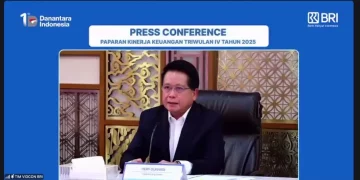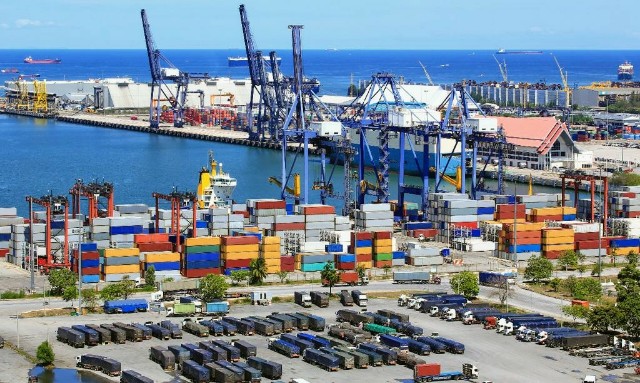By Eko B. Supriyanto, Chairman Infobank Media Group
INDONESIA’s economy appears unaffected by the number of ministers in the cabinet. Regardless of the situation, the economy remains stable. In fact, a bloated cabinet can lead to increased waste and higher chances of widespread corruption. Indonesia must create job opportunities for young people who are increasingly desperate due to the limited job market.
Rumors suggest that the Prabowo-Gibran administra-tion plans to form a cabinet with 40 ministers, up from the 34 ministers in the Jokowi-Amin administration. Previously, the Jokowi-Kalla administration also had 34 ministers: 4 coordinating ministers (menko) and 30 ministers. The SBY-Kalla regime had 3 menko and 31 ministers. There hasn’t been much change in the past 20 years.
Although the cabinet lineup hasn’t been announced yet, there is intense debate and speculation. The proposed increase to 40 ministers is not confirmed, despite official sources. Some analysts believe this expansion is to accommodate the coalition that helped Prabowo-Gibran win. This includes not only the parties that made it to Senayan but also smaller parties, even those previously outside the winning coalition.
The addition of 40 ministers, along with deputy ministers, is supposedly to accommodate those who have worked hard, as well as those who claim to have done so. This is believed to make the government run effectively and quietly, as all factions are included.
Baca juga: Whether a cabinet of 34 ministers or 40 ministers, don’t “breed” the poor, so Gen Z won’t “die of civilization”
However, this does not guarantee success. For example, during the SBY-Boediono era, despite the coalition, there was still unrest, such as the Bank Century scandal used to leverage coalition members. Interestingly, once the SBY-Boediono administration ended, the situation calmed down.
Regardless of whether the cabinet has 40 ministers or not, Indonesia’s economic growth remains steady. Year after year, it is driven by consumer spending and government spending funded by debt. During COVID-19, the economy continued to grow. Without COVID-19, it also grew. Similarly, during elections, the growth was 5.11%, and without elections, it was 5.03%. It seems that in any condition, Indonesia’s economic growth lacks quality. Despite higher growth compared to some countries, it remains insufficient to absorb the workforce due to its second-tier nature.
A report by Kompas indicates that Gen Z (born 1997-2012) finds it increasingly difficult to find job in the formal sector. Over the past 15 years, employment in the formal sector has steadily declined. Gen Z faces more challenges in finding informal sector jobs compared to previous generations. During Jokowi’s second term, job opportunities have become even more limited.
According to the Central Statistics Agency (BPS), between 2009 and 2014, 15.6 million people were employed in the formal sector. This number decreased to 8.5 million from 2014 to 2019 and plummeted to 2 million from 2019 to 2024. Additionally, the wait time for employment has increased. In short, graduates from schools or universities do not find jobs immediately but have to wait for a relatively long time.
Infrastructure development and growing debt (Rp8,000 trillion) have not yet spurred high-quality economic growth. The promised 7% economic growth has never materialized. Despite stagnant unemployment and poverty data, free meal programs and distributing basic goods have proven effective in winning presidential elections.
The Prabowo-Gibran administration needs to change its development strategy. Continuing Jokowi’s approach, appearing to benefit the people with handouts will not improve job absorption. Free meal programs may win over the poor and unemployed but will burden the fiscal budget, costing Rp450 trillion.
Preferring strategies that don’t perpetuate poverty in democratic contests is advisable. Instead, prioritize programs that offer a brighter future for Gen Z. How about focusing on higher education initiatives and attracting foreign investors to build factories in Indonesia? Tackling the estimated 25% leakage in the state budget, as emphasized by Prabowo during his campaign, should take precedence.
Baca juga: Alert! Breaking the Chain of Online Gambling Ecosystem on Financial Sector
Given the economic growth, job opportunities, and unemployment data over the past 15 years, Indonesia will not achieve a “golden generation” by 2045. Instead, we face a “worried generation” struggling to find jobs. Buying a house is out of reach, and even buying a motor-cycle on credit is difficult due to financial blacklisting. Nearly 2 million Gen Z individuals fall into the “civil death” category, unable to access financial institutions. Banks are also uneasy about the growing number of young people on blacklists with low-quality jobs.
Whether the cabinet has 34 or 40 ministers, or even more, it doesn’t matter as long as the goal is not political favoritism but improving governance quality to develop the moral, intellectual, and competency levels of the nation’s youth. Avoid fostering a beggar mentality that relies on government handouts, a strategy often used to maintain political power. Enough is enough. Let’s build competent Indonesians and high-quality economic growth. (*)













